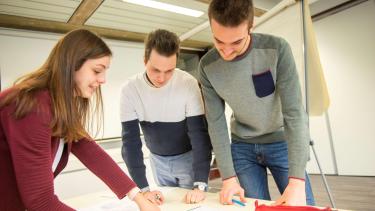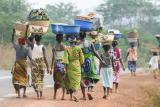DeFiPP consolidates the research work carried out in three pre-existing centers, CRED, CEREFIM and CERPE, each of which represents one of the three main areas of research: development economics, public policy and regional economics and finance, and monetary economics. DeFiPP's main objective is to promote excellent research in economics and finance, with a high international profile, using economic methodology, both in theory and empirical research, which is the common link between the clusters. Cross-fertilization will take place through the joint sharing of new methods or approaches.
L'objectif principal de DeFiPP est de promouvoir l'excellence de la recherche en économie et en finance par le biais de publications scientifiques théoriques et empiriques de premier plan. Pour ce faire, l'institut s'appuie fortement sur les interactions entre les membres de ses trois centres de recherche et encourage le partage de méthodes et d'approches. DeFiPP vise également à développer une visibilité nationale et internationale en collaborant avec des chercheurs de nombreuses universités et de nombreux pays. A cet égard, l'institut, avec plusieurs autres universités belges (KULeuven, UCLouvain et Universiteit Antwerpen), est actuellement impliqué dans le projet Excellence of Science (EOS) qui se concentre sur le développement des connaissances sur les conséquences de la mondialisation et de l'intégration des marchés dans les pays développés et en voie de développement.
Spotlight
News
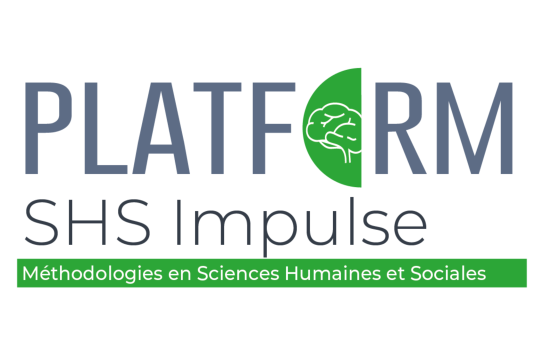
New impetus for the humanities and social sciences at UNamur
New impetus for the humanities and social sciences at UNamur
A new platform dedicated to research in the humanities and social sciences (SHS) is being launched at UNamur. The aim? To offer SHS researchers methodological support tailored to their needs and strengthen SHS excellence at UNamur. This platform, SHS Impulse, will provide various services such as financial support for training, consultancy, access to resources, or co-financed software purchases.
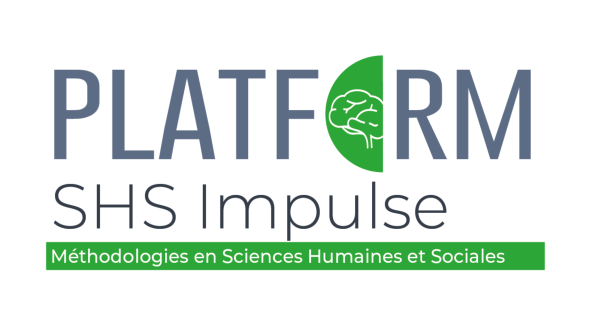
Whether it concerns linguistics, economics, politics, sustainable development, law, history, educational sciences, literature or translation, research in the humanities and social sciences is as eclectic as it is rich and essential for tackling society's challenges. Of UNamur's eleven research institutes, seven are directly involved in SHS research. While there is a high degree of complementarity in these areas of research, better pooling of resources, sharing and easier access to certain services, resources and support will help to sustain and strengthen the excellence of SHS research at UNamur. It is with this in mind that the SHS impulse platform has just been created.
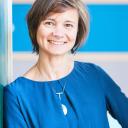
We started from the needs of SHS researchers to establish four axes developed within this platform
.
Resources organized around 4 axes
- Axis 1 - Support for the acquisition of databases, documentary resources and software
- Axis 2 - Subsidy for cutting-edge training in the use of specialized methods
- Axis 3 - Funding access to the SMCS "Support en Méthodologie et Calcul Statistique" platform at UCLouvain, thanks to an inter-university partnership.
- Axis 4 - Setting up an SHS space, containing a laboratory for running experiments and shared work tools promoting exchanges between researchers.
Outlook
This initiative, launched in January 2025, addresses the specific challenges faced by SHS researchers. The long-term aim is to sustain and expand the services. "We will also hire a researcher expert in methodological analysis in SHS who will be able to inform innovative methodologies and frame the methodological design of research projects," emphasizes Sandrine Biémar, vice-dean of UNamur's Faculty of Education and Training Sciences, a member of the IRDENA institute and the SHS Impulse management committee. "The wish is also to support networking between SHS researchers at UNamur and to be a lever for setting up interdisciplinary projects," adds Sandrine Biémar.
The platform's management team is made up of representatives of the university's various SHS institutes, and ensures efficient management of resources. The platform's impact will be assessed during its initial phase (2025-2027), enabling strategies for its sustainability and development to be defined.
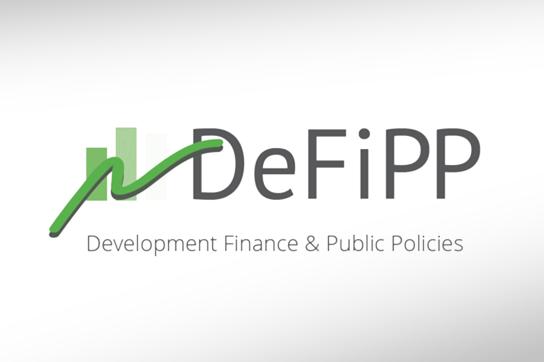
Media and politics: a prestigious international collaboration
Media and politics: a prestigious international collaboration
For the past ten years, Professor Guilhem Cassan has been working on the question of the link between the media and political life in collaboration with Professor Julia Cagé, who has just been awarded the highly prestigious Yrjö Jahnsson Prize, which recognizes the best European economist under the age of 45. The UNamur Department of Economics (EMCP Faculty) and the DeFiPP Institute (CRED Centre) have a network and recognized international expertise in development economics and environmental economics.
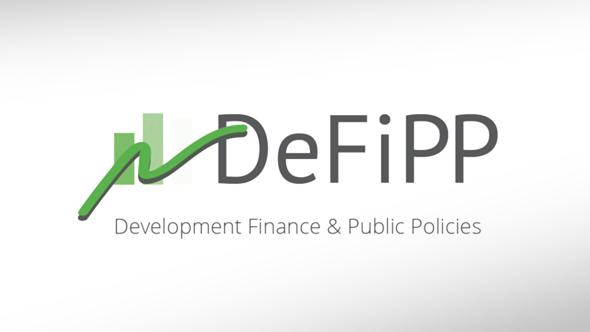
Guilhem Cassan - Department of Economics, EMCP Faculty and Institut DeFiPP (CRED) at the University of Namur - and Julia Cagé - Department of Economics, Sciences Po Paris -, are studying in particular how political life influences the newspaper market in the USA and India, using newly collected data and cutting-edge econometric methods.
This link through research feeds back into the teaching of the economics department, which has a long tradition of integrating cutting-edge research and teaching. Professor Julia Cagé has been a guest lecturer on several occasions in the EMCP Faculty courses, in this case in the Block 2 Integrated Teaching Unit and in research seminars organized by the Institut DeFiPP.
The Yrjö Jahnsson Prize is awarded every two years to a European economist under the age of 45 "who has made a contribution in theoretical and applied research of outstanding importance to the study of economics in Europe". The 2025 prize is awarded jointly to Julia Cagé and David Yanagizawa-Drott for their work on the political economy of the media. Julia Cagé's most recent book, "Une histoire du conflit politique", co-authored with Thomas Piketty, had an extraordinary media and political impact in France in 2023.
The DeFiPP Institute
The Development Finance and Public Policies Institute (DeFIPP) consolidates the research work carried out in three pre-existing centers:
- Centre de recherche en économie du développement (CRED)
- Centre de recherche en finance et gestion (CeReFiM)
- Centre de recherche en économie régionale et politique économique (CERPE)
around three main areas of research: development economics, public policies and regional economics and finance, and monetary economics.

EMCP Faculty | Studies in the Department of Economics
Studying economics means understanding the fundamental dimension of how businesses and our society work, so that you can advise and act as an expert and responsible decision-maker.
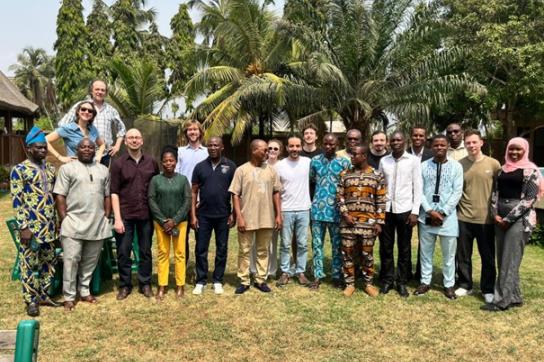
New success for the Vodoun School of Economics in Benin
New success for the Vodoun School of Economics in Benin
The Vodoun School of Economics (VoSE) in January 2025 was another success, bringing together participants from four institutions: the University of Namur, the University of Abomey-Calavi, the University of Antwerp and the African School of Economics.
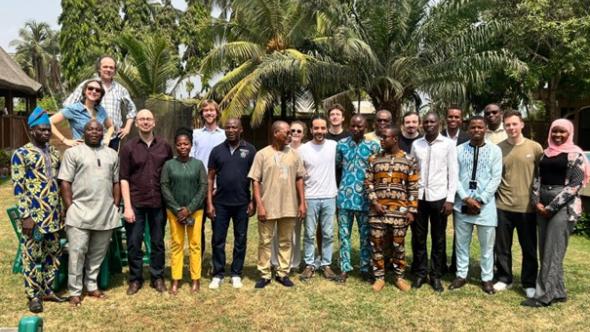
For several years now, the doctoral school of economics and management at Benin's University of Abomey-Calavi (UAC) and researchers from UNamur's Department of Economics and the Institute Development Finance & Public Policies (DeFIPP) develop research training activities.
Every 2 years, researchers from both institutions take part in a conference called the Vodoun School of Economics (VoSE), held in Ouidah, Benin. This doctoral school in economics is coordinated by Professor Romain Houssa. Doctoral students and academics from Benin and Namur presented their research in January 2025. The program included two inaugural lectures and 16 presentations. The special feature of this year's edition was the introduction of sessions on the replication and appropriation, by PhD students, of studies published in top economics journals.
The first inaugural lecture, given by Professor Jean-Marie Baland of the University of Namur, focused on research methodology in development economics. The second focused on modeling commodity prices in a general equilibrium model. It was presented by Romain Houssa of the University of Namur.
The 16 papers covered a variety of topics including:
- political determinants of government budget quality
- the labor market
- poverty and growth
- climate change
- natural resource management
- covid-19
- the role of raw materials in structural change
- investment financing by private networks
- the impact of innovations in the military on the economy's productivity
Each paper was discussed first by an academic before being subjected to a general discussion with participants.
After the conference, researchers from Benin will benefit from a research stay at UNamur to strengthen their research project. This activity is supported by the ARES Institutional Support (IA) program and the Erasmus+ program.
The AI-ARES-UAC 2022-2027 project
The AI-ARES-UAC project is the ARES institutional support (AI) program at the University of Abomey-Calavi (UAC) in Benin. Alongside VoSE, this multidisciplinary research and innovation support program aims to strengthen scientific collaborations between FWB researchers and Benin as well as other countries in this West African region, notably Togo, Niger or Burkina-Faso.
The aim is to improve the quality of multidisciplinary scientific research and innovation in a "One Health" approach, and to enhance the value of results in the fields of food, nutrition and the health of children and women of childbearing age, taking into account socio-economic factors, equity and inclusion.
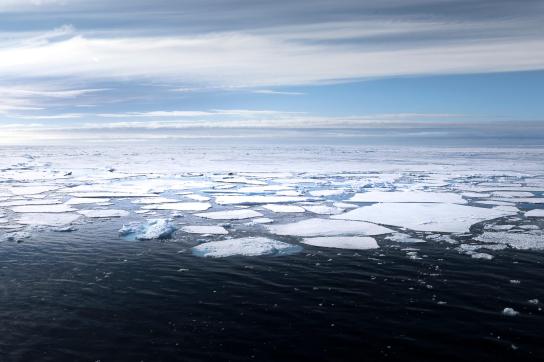
Better prediction of climate extremes
Better prediction of climate extremes
Statistics usually focus on anticipating events that fall within the norm. But what about rare events? They are dealt with by a branch of mathematics called extreme value theory, in which Anna Kiriliouk, lecturer in statistics at UNamur, is a specialist. Applied to the climate, this theory enables us to better predict extreme climatic events, at a time when these are multiplying due to climate change.
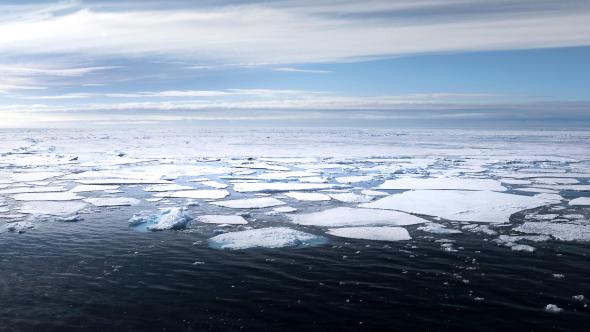
This article is taken from the "Impact" section of the December 2024 issue of Omalius magazine.
On the night of January 31, 1953, the North Sea suddenly rose by almost four meters, submerging parts of the Netherlands and Belgium. The disaster caused the death of over 2,500 people, as well as considerable damage. According to Anna Kiriliouk, lecturer in statistics at UNamur's Department of Mathematics and EMCP Faculty, this exceptional event truly marked "the beginning of the development of extreme value theory, with the development of the first extreme value construction project"
The Delta Plan, as it is called, is a system of dikes that protects the Netherlands against the risk of flooding, with these dikes overtopping once every 10,000 years. A rare danger, certainly, but not zero, which "could not have been calculated using conventional statistics, which are very poorly adapted to rare events", believes the mathematician.
While climate change is often discussed in terms of averages, such as rising temperatures and sea levels, it also has the consequence of increasing the frequency of extreme weather events, with significant repercussions for our societies. "In other words, the risk increases along with the concentration of greenhouse gases (GHGs) in the atmosphere", summarizes the researcher. "Thus, a flood calculated in 1953 to occur only every 10,000 years does not have the same significance as today. The latter could happen more frequently, for example every 1,000 years."
Attributing extreme events
While extreme weather events are on the increase, it's difficult in practice to attribute any particular flood or drought to climate change. With this in mind, Anna Kiriliouk has just been awarded an interdisciplinary research project,named EXALT, in collaboration with UCLouvain. "It involves both climatologists and statisticians, she reveals.
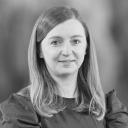
"This collaboration is very important, because answering this question of the attribution of extreme events can only be done through the development of a common language between our two disciplines, which currently operate separately. We have a lot to learn from each other"
In practice, the EXALT project will therefore calculate the probabilities of an extreme event occurring, and compare this probability with that of the same situation in a world where GHG emissions would not have increased. "Of course, we don't have real data from such a world", says Anna Kiriliouk. "We are therefore basing ourselves on alternative climate simulations, the quality of which we will moreover compare, with a focus on extreme events."
Divided into three working groups, the EXALT project will seek in particular to determine the role of climate change in the occurrence of floods, as well as heat waves and drought in Europe. And to do so as realistically as possible: "One of the things we want to incorporate into climate models concerns the dependency between data," explains Anna Kiriliouk. "For example, if a heat wave hits Namur, there's a good chance that the same temperatures will affect Louvain-La-Neuve. We therefore say that there is a strong spatial dependency between these two data. However, this dependence is probably not at all valid for rain, which is much more heterogeneous. By taking into account all these variables, both spatial and temporal, we hope to improve existing models."
A third working group will study much more distant areas, located in Antarctica. "Until 2016, the extent of the Antarctic ice pack was increasing, before abruptly decreasing", the researcher illuminates. "Or, according to the models, this event was considered almost impossible. But with one of EXALT's partners, we began to analyze the evolution of pack ice extent using extreme value theory. With the latter, this sudden drop was no longer so improbable. This gave us confidence in our approach, which is all the more important when the state of the pack ice has such a strong influence on other climate variables."
Compound events
This interaction between several climatic processes is, moreover, the subject of a second project just obtained by Anna Kiriliouk and funded by an FNRS Mandat d'Impulsion Scientifique. "The aim is to make it possible to study what we call compound events", explains the researcher. "During extreme climatic situations, we usually associate very high or low values simultaneously, such as a lack of rain and high temperature, resulting in an intense drought. But in the case of compound phenomena, we find that the combination of several variables, albeit in a moderate state, results in a severe and unusual event."
In 2017, for example, Hurricane Sandy, which struck the US coastline, is considered a compound event. While North Atlantic hurricanes usually dissipate in mid-ocean, this one coincided with onshore winds and a high tide, leading to massive flooding of New York and the surrounding area.
"In this project, we will therefore try to include more flexibility between the different variables, by introducing different degrees of dependence, the mathematician elaborates. "We're also going to try, as a second step, to group the dependencies together, in order to lighten the models, which become more and more complex as we add nuances to them. And once these models have been modified, we'll apply them to recent events to test their realism."
EXALT - ARC project (FWB)
Funded by the Wallonia-Brussels Federation (FWB), ARC projects are Concerted Research Action projects that aim to develop university or inter-university centers of excellence in basic research areas and, where possible, that carry out basic and applied research in an integrated way and aim to add economic and social value to research results.
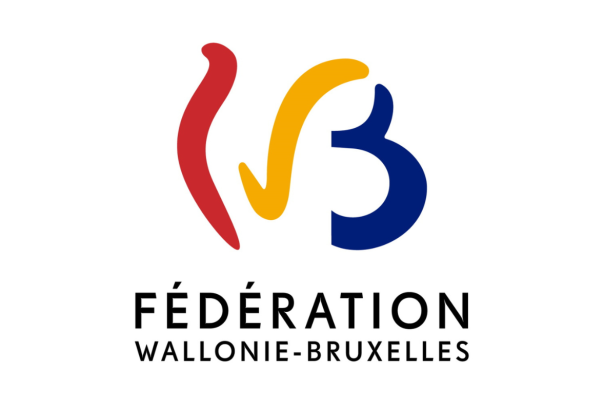
Mandat d'impulsion scientifique (MIS) - FNRS
The aim of the funding granted is to support young permanent researchers wishing to develop a scientific unit within their academic institution in a promising field. This mandate has earned Anna Kiriliouk a fellowship from Namur Research College (NARC).
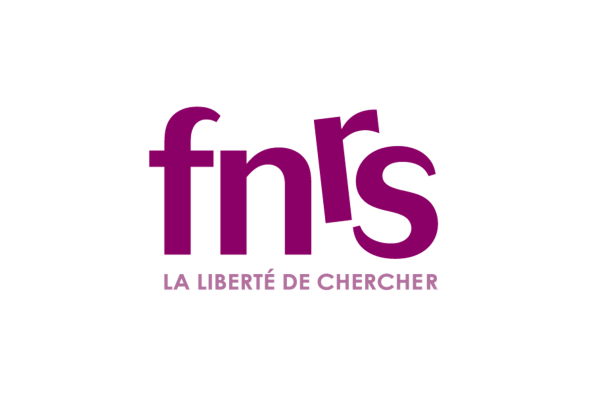
This article is taken from the "Impact" section of Omalius magazine #35 (December 2024).


New impetus for the humanities and social sciences at UNamur
New impetus for the humanities and social sciences at UNamur
A new platform dedicated to research in the humanities and social sciences (SHS) is being launched at UNamur. The aim? To offer SHS researchers methodological support tailored to their needs and strengthen SHS excellence at UNamur. This platform, SHS Impulse, will provide various services such as financial support for training, consultancy, access to resources, or co-financed software purchases.

Whether it concerns linguistics, economics, politics, sustainable development, law, history, educational sciences, literature or translation, research in the humanities and social sciences is as eclectic as it is rich and essential for tackling society's challenges. Of UNamur's eleven research institutes, seven are directly involved in SHS research. While there is a high degree of complementarity in these areas of research, better pooling of resources, sharing and easier access to certain services, resources and support will help to sustain and strengthen the excellence of SHS research at UNamur. It is with this in mind that the SHS impulse platform has just been created.

We started from the needs of SHS researchers to establish four axes developed within this platform
.
Resources organized around 4 axes
- Axis 1 - Support for the acquisition of databases, documentary resources and software
- Axis 2 - Subsidy for cutting-edge training in the use of specialized methods
- Axis 3 - Funding access to the SMCS "Support en Méthodologie et Calcul Statistique" platform at UCLouvain, thanks to an inter-university partnership.
- Axis 4 - Setting up an SHS space, containing a laboratory for running experiments and shared work tools promoting exchanges between researchers.
Outlook
This initiative, launched in January 2025, addresses the specific challenges faced by SHS researchers. The long-term aim is to sustain and expand the services. "We will also hire a researcher expert in methodological analysis in SHS who will be able to inform innovative methodologies and frame the methodological design of research projects," emphasizes Sandrine Biémar, vice-dean of UNamur's Faculty of Education and Training Sciences, a member of the IRDENA institute and the SHS Impulse management committee. "The wish is also to support networking between SHS researchers at UNamur and to be a lever for setting up interdisciplinary projects," adds Sandrine Biémar.
The platform's management team is made up of representatives of the university's various SHS institutes, and ensures efficient management of resources. The platform's impact will be assessed during its initial phase (2025-2027), enabling strategies for its sustainability and development to be defined.

Media and politics: a prestigious international collaboration
Media and politics: a prestigious international collaboration
For the past ten years, Professor Guilhem Cassan has been working on the question of the link between the media and political life in collaboration with Professor Julia Cagé, who has just been awarded the highly prestigious Yrjö Jahnsson Prize, which recognizes the best European economist under the age of 45. The UNamur Department of Economics (EMCP Faculty) and the DeFiPP Institute (CRED Centre) have a network and recognized international expertise in development economics and environmental economics.

Guilhem Cassan - Department of Economics, EMCP Faculty and Institut DeFiPP (CRED) at the University of Namur - and Julia Cagé - Department of Economics, Sciences Po Paris -, are studying in particular how political life influences the newspaper market in the USA and India, using newly collected data and cutting-edge econometric methods.
This link through research feeds back into the teaching of the economics department, which has a long tradition of integrating cutting-edge research and teaching. Professor Julia Cagé has been a guest lecturer on several occasions in the EMCP Faculty courses, in this case in the Block 2 Integrated Teaching Unit and in research seminars organized by the Institut DeFiPP.
The Yrjö Jahnsson Prize is awarded every two years to a European economist under the age of 45 "who has made a contribution in theoretical and applied research of outstanding importance to the study of economics in Europe". The 2025 prize is awarded jointly to Julia Cagé and David Yanagizawa-Drott for their work on the political economy of the media. Julia Cagé's most recent book, "Une histoire du conflit politique", co-authored with Thomas Piketty, had an extraordinary media and political impact in France in 2023.
The DeFiPP Institute
The Development Finance and Public Policies Institute (DeFIPP) consolidates the research work carried out in three pre-existing centers:
- Centre de recherche en économie du développement (CRED)
- Centre de recherche en finance et gestion (CeReFiM)
- Centre de recherche en économie régionale et politique économique (CERPE)
around three main areas of research: development economics, public policies and regional economics and finance, and monetary economics.

EMCP Faculty | Studies in the Department of Economics
Studying economics means understanding the fundamental dimension of how businesses and our society work, so that you can advise and act as an expert and responsible decision-maker.

New success for the Vodoun School of Economics in Benin
New success for the Vodoun School of Economics in Benin
The Vodoun School of Economics (VoSE) in January 2025 was another success, bringing together participants from four institutions: the University of Namur, the University of Abomey-Calavi, the University of Antwerp and the African School of Economics.

For several years now, the doctoral school of economics and management at Benin's University of Abomey-Calavi (UAC) and researchers from UNamur's Department of Economics and the Institute Development Finance & Public Policies (DeFIPP) develop research training activities.
Every 2 years, researchers from both institutions take part in a conference called the Vodoun School of Economics (VoSE), held in Ouidah, Benin. This doctoral school in economics is coordinated by Professor Romain Houssa. Doctoral students and academics from Benin and Namur presented their research in January 2025. The program included two inaugural lectures and 16 presentations. The special feature of this year's edition was the introduction of sessions on the replication and appropriation, by PhD students, of studies published in top economics journals.
The first inaugural lecture, given by Professor Jean-Marie Baland of the University of Namur, focused on research methodology in development economics. The second focused on modeling commodity prices in a general equilibrium model. It was presented by Romain Houssa of the University of Namur.
The 16 papers covered a variety of topics including:
- political determinants of government budget quality
- the labor market
- poverty and growth
- climate change
- natural resource management
- covid-19
- the role of raw materials in structural change
- investment financing by private networks
- the impact of innovations in the military on the economy's productivity
Each paper was discussed first by an academic before being subjected to a general discussion with participants.
After the conference, researchers from Benin will benefit from a research stay at UNamur to strengthen their research project. This activity is supported by the ARES Institutional Support (IA) program and the Erasmus+ program.
The AI-ARES-UAC 2022-2027 project
The AI-ARES-UAC project is the ARES institutional support (AI) program at the University of Abomey-Calavi (UAC) in Benin. Alongside VoSE, this multidisciplinary research and innovation support program aims to strengthen scientific collaborations between FWB researchers and Benin as well as other countries in this West African region, notably Togo, Niger or Burkina-Faso.
The aim is to improve the quality of multidisciplinary scientific research and innovation in a "One Health" approach, and to enhance the value of results in the fields of food, nutrition and the health of children and women of childbearing age, taking into account socio-economic factors, equity and inclusion.

Better prediction of climate extremes
Better prediction of climate extremes
Statistics usually focus on anticipating events that fall within the norm. But what about rare events? They are dealt with by a branch of mathematics called extreme value theory, in which Anna Kiriliouk, lecturer in statistics at UNamur, is a specialist. Applied to the climate, this theory enables us to better predict extreme climatic events, at a time when these are multiplying due to climate change.

This article is taken from the "Impact" section of the December 2024 issue of Omalius magazine.
On the night of January 31, 1953, the North Sea suddenly rose by almost four meters, submerging parts of the Netherlands and Belgium. The disaster caused the death of over 2,500 people, as well as considerable damage. According to Anna Kiriliouk, lecturer in statistics at UNamur's Department of Mathematics and EMCP Faculty, this exceptional event truly marked "the beginning of the development of extreme value theory, with the development of the first extreme value construction project"
The Delta Plan, as it is called, is a system of dikes that protects the Netherlands against the risk of flooding, with these dikes overtopping once every 10,000 years. A rare danger, certainly, but not zero, which "could not have been calculated using conventional statistics, which are very poorly adapted to rare events", believes the mathematician.
While climate change is often discussed in terms of averages, such as rising temperatures and sea levels, it also has the consequence of increasing the frequency of extreme weather events, with significant repercussions for our societies. "In other words, the risk increases along with the concentration of greenhouse gases (GHGs) in the atmosphere", summarizes the researcher. "Thus, a flood calculated in 1953 to occur only every 10,000 years does not have the same significance as today. The latter could happen more frequently, for example every 1,000 years."
Attributing extreme events
While extreme weather events are on the increase, it's difficult in practice to attribute any particular flood or drought to climate change. With this in mind, Anna Kiriliouk has just been awarded an interdisciplinary research project,named EXALT, in collaboration with UCLouvain. "It involves both climatologists and statisticians, she reveals.

"This collaboration is very important, because answering this question of the attribution of extreme events can only be done through the development of a common language between our two disciplines, which currently operate separately. We have a lot to learn from each other"
In practice, the EXALT project will therefore calculate the probabilities of an extreme event occurring, and compare this probability with that of the same situation in a world where GHG emissions would not have increased. "Of course, we don't have real data from such a world", says Anna Kiriliouk. "We are therefore basing ourselves on alternative climate simulations, the quality of which we will moreover compare, with a focus on extreme events."
Divided into three working groups, the EXALT project will seek in particular to determine the role of climate change in the occurrence of floods, as well as heat waves and drought in Europe. And to do so as realistically as possible: "One of the things we want to incorporate into climate models concerns the dependency between data," explains Anna Kiriliouk. "For example, if a heat wave hits Namur, there's a good chance that the same temperatures will affect Louvain-La-Neuve. We therefore say that there is a strong spatial dependency between these two data. However, this dependence is probably not at all valid for rain, which is much more heterogeneous. By taking into account all these variables, both spatial and temporal, we hope to improve existing models."
A third working group will study much more distant areas, located in Antarctica. "Until 2016, the extent of the Antarctic ice pack was increasing, before abruptly decreasing", the researcher illuminates. "Or, according to the models, this event was considered almost impossible. But with one of EXALT's partners, we began to analyze the evolution of pack ice extent using extreme value theory. With the latter, this sudden drop was no longer so improbable. This gave us confidence in our approach, which is all the more important when the state of the pack ice has such a strong influence on other climate variables."
Compound events
This interaction between several climatic processes is, moreover, the subject of a second project just obtained by Anna Kiriliouk and funded by an FNRS Mandat d'Impulsion Scientifique. "The aim is to make it possible to study what we call compound events", explains the researcher. "During extreme climatic situations, we usually associate very high or low values simultaneously, such as a lack of rain and high temperature, resulting in an intense drought. But in the case of compound phenomena, we find that the combination of several variables, albeit in a moderate state, results in a severe and unusual event."
In 2017, for example, Hurricane Sandy, which struck the US coastline, is considered a compound event. While North Atlantic hurricanes usually dissipate in mid-ocean, this one coincided with onshore winds and a high tide, leading to massive flooding of New York and the surrounding area.
"In this project, we will therefore try to include more flexibility between the different variables, by introducing different degrees of dependence, the mathematician elaborates. "We're also going to try, as a second step, to group the dependencies together, in order to lighten the models, which become more and more complex as we add nuances to them. And once these models have been modified, we'll apply them to recent events to test their realism."
EXALT - ARC project (FWB)
Funded by the Wallonia-Brussels Federation (FWB), ARC projects are Concerted Research Action projects that aim to develop university or inter-university centers of excellence in basic research areas and, where possible, that carry out basic and applied research in an integrated way and aim to add economic and social value to research results.

Mandat d'impulsion scientifique (MIS) - FNRS
The aim of the funding granted is to support young permanent researchers wishing to develop a scientific unit within their academic institution in a promising field. This mandate has earned Anna Kiriliouk a fellowship from Namur Research College (NARC).

This article is taken from the "Impact" section of Omalius magazine #35 (December 2024).

Les points forts de DeFiPP
- L'intégration de domaines de recherche et d'approches qui différent mais sont liés, tant en économie qu'en finance.
- L'importance des trois centres de recherche de l'institut. En particulier, le CRED est considéré comme un centre de pointe en économie du développement en Europe, et est notamment soutenu par l'Union européenne à travers le European Research Council (ERC) Starting Grant. Le CERPE est connu pour son rôle de conseil dans les politiques publiques belges. Quant au CeReFiM, il a récemment collaboré avec des organisations du secteur privé dans le cadre des chaires de recherche Ageas et BNP Paribas Fortis consacrées à la gestion des risques systémiques et des risques d'actifs.
- L'organisation de diverses activités de recherche qui rassemblent les membres des différents centres de recherche. Ces activités se répartissent en deux catégories : les activités de DeFiPP, par exemple les séminaires hebdomadaires d'économie et les workshops de DeFiPP) et les activités co-organisées avec d'autres universités (par exemple l'atelier de doctorat co-organisé deux fois par an avec l'UCLouvain et l'Université Saint-Louis).
- La participation des trois centres de recherche de la DeFiPP à une école doctorale commune, avec d'autres universités belges, qui permet aux membres de la DeFiPP de suivre des cours de doctorat de haute qualité.


